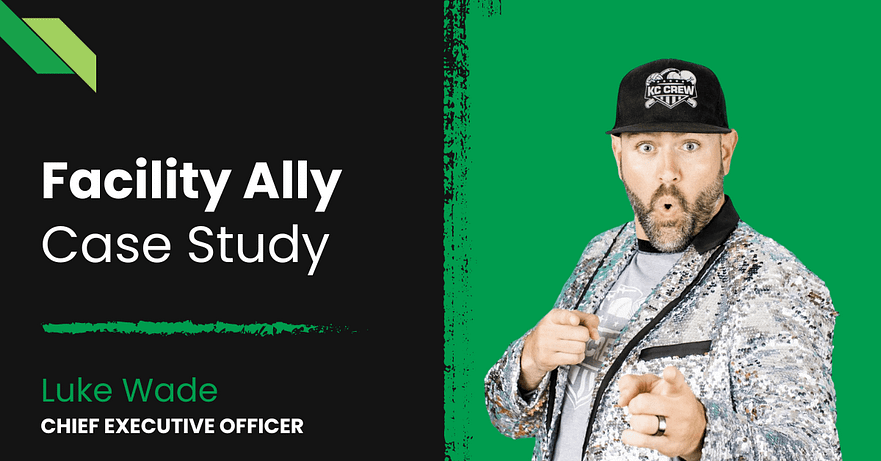How to Start A Tech Startup Business As A Non-Technical Person
Do you want to know how to build a tech startup as a non-technical founder? It’s certainly possible. You don’t need to be a programmer any more than someone has to be a videographer to come up with a great idea for a TV show. This article discusses what you need to know before kickstarting a tech business, with or without a technical background.
Today’s technological disruptions across multiple industries mean that opportunities for tech service providers continue to grow. And for businesses that offer solutions involving software, cloud storage, or artificial intelligence, this is great news.
But what about non-technical people who wish to venture into the tech field? Or entrepreneurs who want to incorporate technology into their products and services?
In this entry, we’ll explain what it takes to create a tech startup as a non-technical person.
Checklist for Launching A Tech Startup
To get started, you’ll need to consider the requirements of building a tech startup. Here are some actionable steps that will cement a great foundation for your new business:
1. Idea and Brand
First, you need to have an idea for a product or service that you want to provide. This can be something that solves a problem you’ve experienced or fills a need you’ve seen in the market.
Once you have the idea, you can build your brand around it. The brand is an intangible part of a business that describes what the product or service is about and who it’s for. It can also define your company’s unique “personality” (hip or retro, very serious or fond of cats).
2. Market and Customers
Second, you need to validate this idea with potential customers or users to ensure that there’s demand for what you want to create. How do you accomplish this? You can start by doing market research on your product. See if there is an existing market or if a similar product is available. If both exist, there’s definitely potential demand for your offer. You can then identify a target audience to build your product and strategies around.
3. Team
Once you have your idea and market, it’s time to build your team. You need to put together a group of co-founders and subject matter experts who share your vision. Next, you can start hiring employees or developers who have the skills needed to bring your idea to life.
Most tech startups look into hiring offshore software developers. This is a cost-effective way to create new software while building a tech startup.
You can read more about offshore software development in this entry: Everything You Need to Know About Offshore Software Development.
4. Funds
Speaking of costs, the next foundational element in creating a startup is funding. You definitely need access to capital to launch your tech startup. If you don’t have personal savings, you can reach out to investors or institutions that might help you. Among others, they include:
- Angel investors
- Accelerators/incubators
- Venture capitalists
To get help starting a tech startup as a non-technical person, you can reach out to these institutions; money is not the only assistance they can provide. Most investors have vast tech business experience that can benefit you as a budding entrepreneur.
Read more about other startup funding sources here.
Best Practices and Guidelines for Non-Technical Entrepreneurs
Now that you know what it takes to start a business, we’ll share some best practices and guidelines that will give you insight into how to build a startup. After you put together the basic elements of a tech startup, you can start implementing strategies that will help you grow. These strategies are very useful even for non-technical entrepreneurs.
1. Know What You Are
First, it’s important to understand the difference between a “tech startup” and a “traditional business.” A tech startup is typically defined as a company that uses technology to solve a problem in highly innovative ways. This means your product or service should offer something unique or different from existing products on the market.
To be successful, you need to have a deep understanding of the problem you’re trying to solve as well as the market you’re entering. This means that you have to do your research about the market and people who might buy your product. Collecting feedback from potential customers or users is one way to establish what you could contribute as a tech startup.
2. Use Technology and Productivity Tools
In the tech industry, there’s a strong trend toward letting go of traditional or manual processes and adopting digital solutions. Today, there are countless tools that automate or computerize various business tasks. Some examples include:
Project task management
- Jira
- Monday
- Asana
- Trello
Communication and Collaboration
- Zoom
- Google Meets
- Slack
- GSuite
Cloud platforms
- Microsoft Azure
- Google Cloud Platform
- Amazon Web Services
Software development
- Git
- Codenvy
- Stackify
These are only a few of the software services available on the market today. As a non-technical person, it’s best to surround yourself with technology to achieve optimal efficiency in your startup.
3. Develop A Solid Business Plan
Failing to plan is a plan for failure. Your business plan will serve as a roadmap to your company’s future. As such, it should showcase your vision, mission, business model, budget, research, and market analysis.
Potential investors will want to see your business plan. They need to gain insights into how you’ll produce revenue and scale your business. Investors will also look for an exit strategy that you can implement if drastic changes occur.
Read more in this entry on What a Business Plan Should Include.
4. Build A Great Team
Hardware and software can accomplish many things, but your startup will only be as good as its people. Having a highly motivated team with the right skills to build and launch your product or service is vital.
With co-stakeholders, you need to look for subject matter experts who will help elevate your product. In addition, it’s wise to include tech-savvy individuals on your leadership team if you’re a non-technical person.
You’ll benefit from hiring software developers with skills and experience that fit your needs. For example, if you’re building a .NET application, you must hire a specialized .NET developer with training or education specific to the .NET framework. This will speed up development and improve the results.
Build Your Team With Full Scale
Today, many businesses struggle to hire software development teams that they can rely upon. Another challenge is the competence level of the developers that they hire. With the current shortage of developers, businesses often settle for less-than-exceptional talent.
Fortunately, you can build your very own software development team with Full Scale!
We are a software services company providing our global clients with talent for software development. We accomplish this with the help of our offshore development arm in the Philippines.
At Full Scale, we only hire the best of the best. As of writing, just one in 30 applicants get the opportunity to work with our clients. Full Scale’s stringent hiring process ensures that our customers benefit from a talent pool with top-notch skills and expertise.
We have software developers, project managers, quality assurance testers, and content marketing specialists. So, if you’re a non-technical startup founder, you have found the right place to work with tech experts who can reliably meet your needs.



